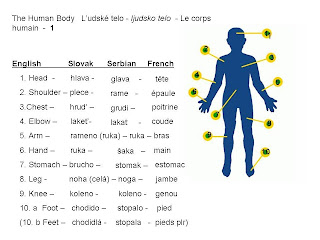After two months of adjusting an old course of mine to the new set of quality criteria at Udemy, Serbian 102 has been approved and is visible for anyone interested in learning Serbian at pre-intermediate level. I'm adding now additional new video lessons such as this one:
and quizzes:
TEST - 15 rečenica
Example with Sg. JA + IĆI + CRKVA >>> Idem u crkvu
Example with Pl. TI + VIDETI + MOSTOVI >>> Vidiš mostove
LEARN
SPACERACE
Accusative in Serbian
and quizzes:
Quizzes with Accusative in Serbian
TEST - 15 rečenica
Example with Sg. JA + IĆI + CRKVA >>> Idem u crkvu
Example with Pl. TI + VIDETI + MOSTOVI >>> Vidiš mostove
LEARN
SPACERACE

.png)


























